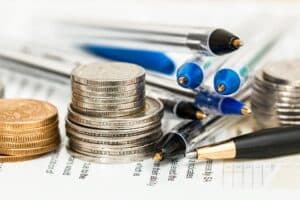The president of the Swiss bank UBS in Brazil, Sylvia Coutinho, assesses that the country has all the conditions to assume global leadership in the issue of “green finance”.
At a time when international demands and economic agents themselves are increasing for sustainable environmental policies, she says that the Brazil “it has the greatest environmental assets on the planet” and may be able to attract foreign investment if it knows how to take advantage of this opportunity.

What is your assessment of Brazil's economic scenario?
Brazil is going through a classic cycle of economic recovery. This year would initially be the fourth year of a ten-year period of growth. Because we have a vision that foresees ten years of sustained growth.
And we hope that 2020 will be the first year, this being the first four years of this recovery, in which we see a little more robust growth.
Despite, still clear, the impacts caused by the coronavirus, which should bring growth down a little. Although we estimated that this year's GDP would be around 2.5%. And we're revising to something like 2.1%.
How important are reforms to this recovery?
One thing that I think is positive when we look at Brazil is that it is one of the few markets that is facing the necessary reforms head on. Although it was obvious, the pension reform was an important milestone.
So, you look there and there are a series of markets, including developed ones, which are having to go through the same difficult reforms and which are not succeeding. Brazil is there, not only doing its homework, but there are signs that it will continue to do so.
Despite our vision of a positive ten-year cycle ahead, it also assumes, of course, that these reforms continue to happen. Indeed, Brazil continues in that famous ranking of Doing Business (the best countries to do business) with a very bad score.
And we hope that this, over this period, will contribute to significantly improving the country's position in the ranking.
The government is trying to reduce the State's participation and thus attract the private sector for investments. As Mrs. see this?
The close of last year's GDP, which will be announced in March, is estimated at around 1.0%, 1.1%. When we look at the resulting number, it's not as robust as we would expect.
But when you deconstruct this 1.0%, you had the State retreating around 0.6% and the private sector growing 2.0%, which resulted in the 1.1% that we will see in March. The result may have been less than what the market wanted.
But qualitatively it is quite healthy. And more sustainable than previous growths, which were often artificially inflated by government actions and short-term consumption.
What else has caught your attention?
Other actions that excite me a lot are what is happening in the infrastructure sector, in agribusiness, which, in addition to being piloted by people who really understand the business, are reformulating themselves to become increasingly competitive globally.
The Central Bank also has a strong agenda to increase competition. I would say that all of this is converging towards greater structural economic growth.
Should the coronavirus epidemic hinder growth?
The external scenario opened the year quite benignly. Apart from the coronavirus and the situation in the Middle East, I would say that the cooling of the trade war between China and the United States calmed down the markets, and we gradually noticed a recovery in the appetite for emerging markets. Especially when you think that you have developed markets out there with very low interest rates and often even negative ones.
Do low interest rates make it easier for Brazil?
When we think of a more domestic day-to-day, in the short, medium and long term, the average interest rate in Brazil over the last 20 years was 13.1%. We expect it to be around 5.5% over the next ten years. This has several implications.
We have never seen in the market, for a longer period, low interest rates, low inflation. And the Brazilian economy, traditionally, is little leveraged. We have followed the tradition of extremely high interest rates for so many years.
Let's take the real estate credit market in Brazil as an example. Here we have a market with enormous leverage potential, which is still in its infancy, not least because of the instruments to do so. I don't think we've seen the effects of a low interest rate for an extended period of time on the Brazilian economy in the country. This is also a very interesting point.
These scenarios I mentioned presuppose that the reforms will continue to move forward in the country. We estimate that, in some way, this dialogue will take place in a constructive way and that some of these important reforms will be approved. Apart from the microeconomic proposals, which are also moving forward.
Has the pace of privatization been lower than expected?
This is not an easy agenda. I think that all the agents involved are moving towards moving forward in a very constructive way in this agenda. But that was to be expected. I find it difficult to judge whether it could be going at a much faster pace depending on the context in which they find themselves.
At the World Economic Forum in Davos, since Brazil was charged to have better environmental practices. And it became clear that a bad environmental policy could drive investors away. What's your assessment?
In short Brazil, for me, has the potential to become the world leader in green finance. We have the greatest environmental assets on the planet. Our entire infrastructure agenda is green. In fact, this is the type of capital that we are in a position to attract. So this agenda is very important. Today, globally, there is tremendous demand for this entire ESG agenda, for sustainable investment.


